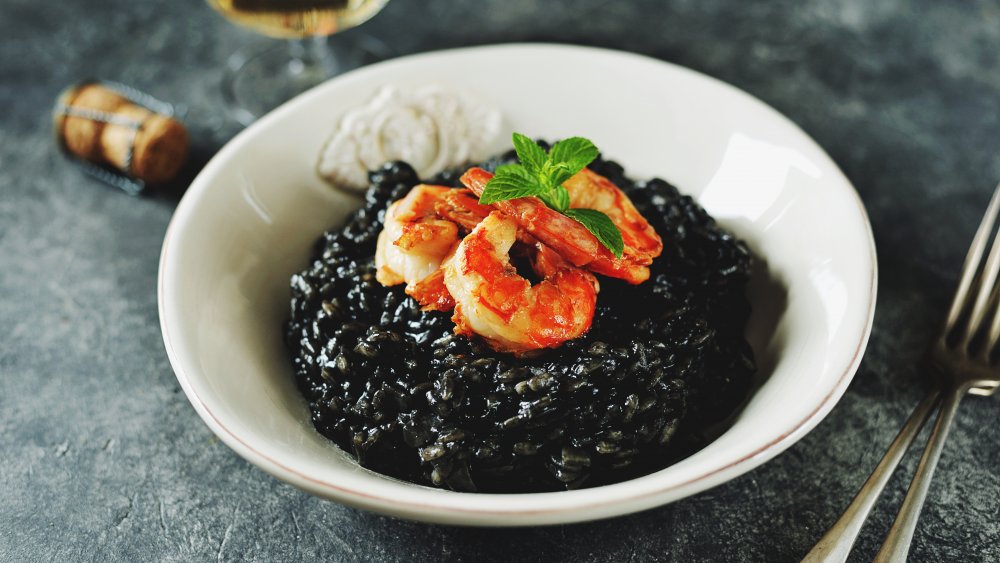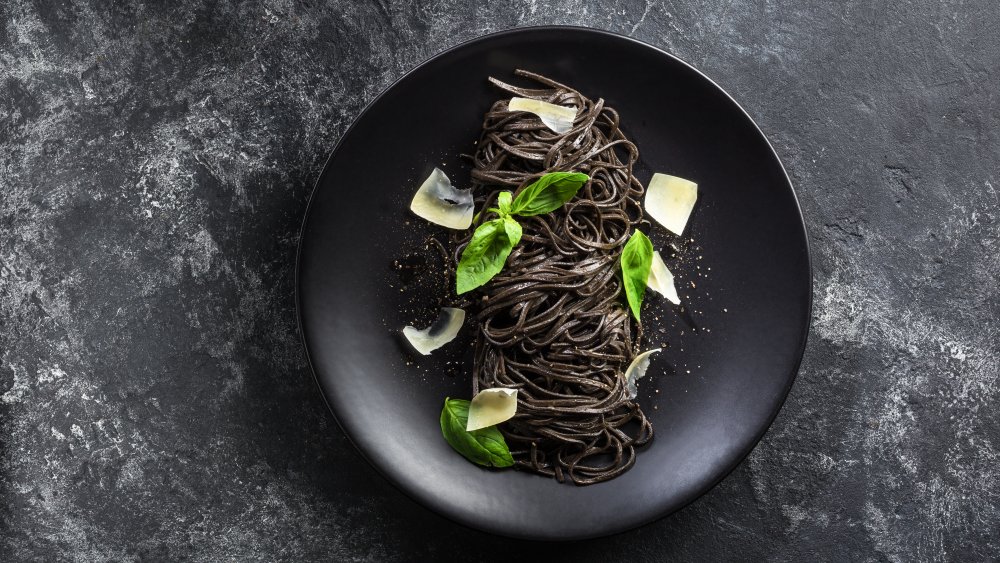The Surprising Health Benefits Of Eating Squid Ink
Squid ink is a bluish black liquid that cephalopods, including squids (think calamari), excrete from a sac near their gills in order to obscure the water and hide from, or escape, a predator. It's long been a staple of Japanese and Mediterranean cuisines, thanks to its unique color and rich, savory flavor (via Healthline). While it is most commonly found in small amounts, lending its signature color and flavor to rice and pasta dishes, a little internet research will turn up all kinds of purported health benefits of consuming squid ink, from antimicrobial and antioxidant effects, to cancer fighting, blood pressure regulating, and immunity boosting properties. But, are any of the claims true?
To answer that, we should first look at what makes up squid ink. According to Berkeley Wellness, the dark liquid consists of mostly melanin, which makes sense, since that's the pigment that determines the darkness of your skin tone. In addition to the melanin, squid ink also contains amino acids (like glutamate, taurine, alanine, leucine, and aspartic acid), metals (like cadmium, lead, and copper), plus enzymes, polysaccharides, and catecholamines, or hormones. Whether or not there are tangible health benefits associated with ingesting these compounds is the real question.
More potential benefits of eating squid ink
So far, research on the effects of squid ink have been mainly test tube and animal studies, but the results have been quite impressive. One study showed squid ink had a neutralizing effect on bacteria that cause dental plaque, while another showed a similar neutralizing effect on bacteria that cause food-borne illnesses like e. coli.
Similar test tube and animal studies have shown potent antioxidant properties in squid ink that could help prevent damage from dangerous free radicals, reducing the risk of illnesses like cancer, heart disease, and even diabetes. There has also been a study showing some potential benefits of squid ink being used to fight cancer (in conjunction with other treatments) (via LiveStrong). The ink even contains compounds that might help blood vessels dilate, fight off stomach ulcers, and even aid in the development of immune cells (via Medical Daily). Before you go rushing out to your local fishmonger for a pint of squid ink, however, keep in mind that these are mostly test tube and animal studies, and a lot more research is needed before the proposed benefits can be confirmed in humans. Even so, the amount you're getting in your favorite pasta or paella is likely not enough to produce any real, therapeutic benefits.

